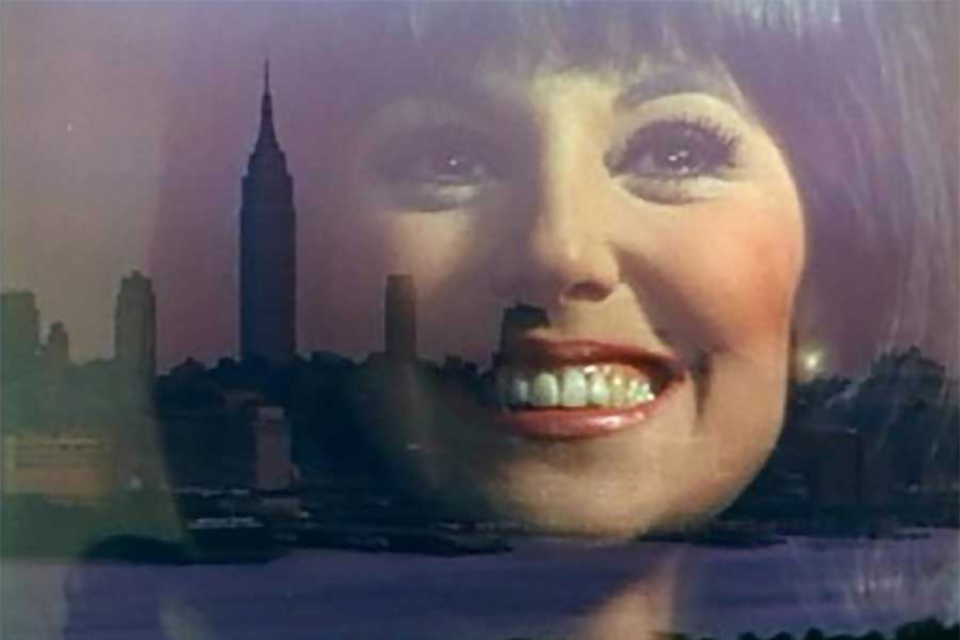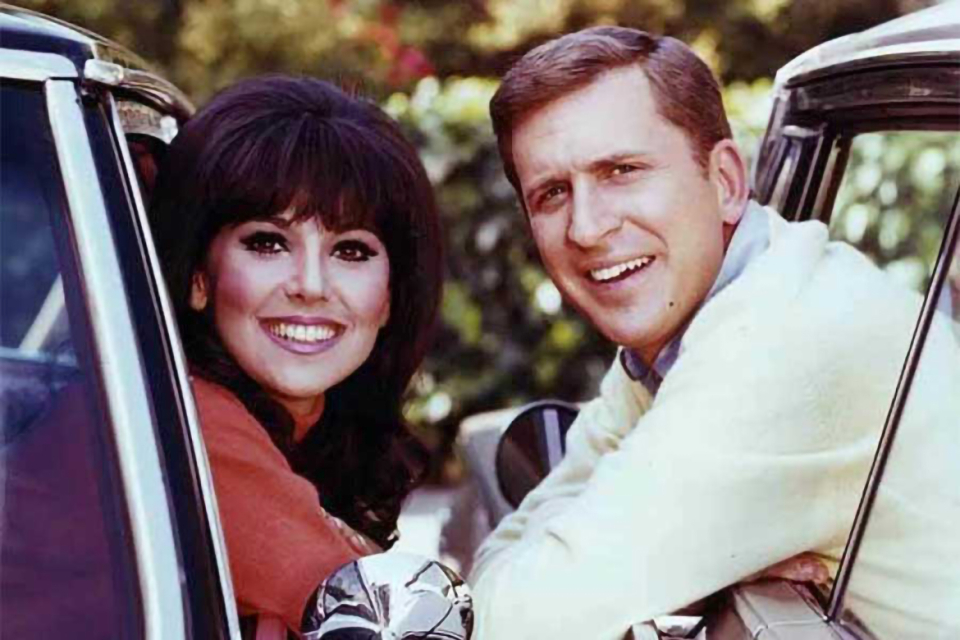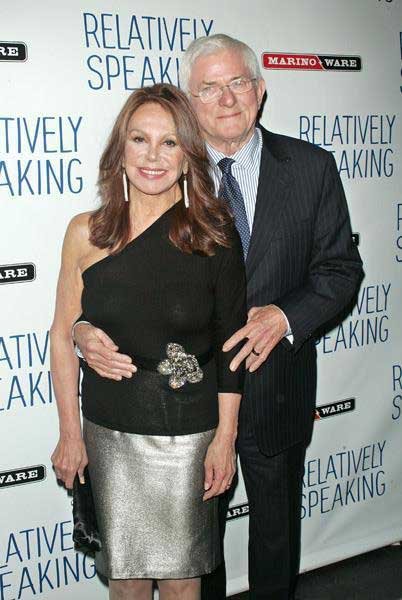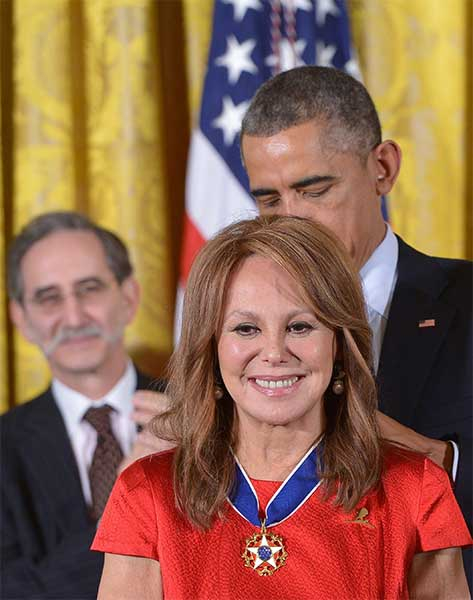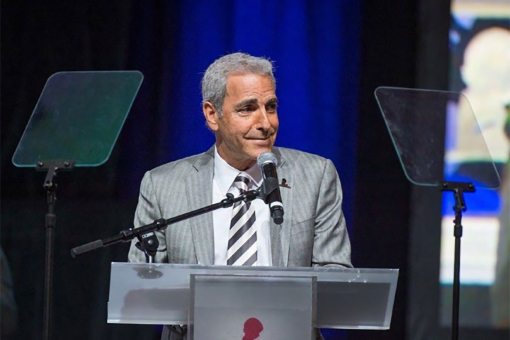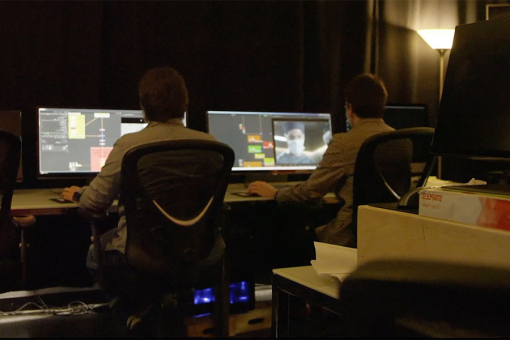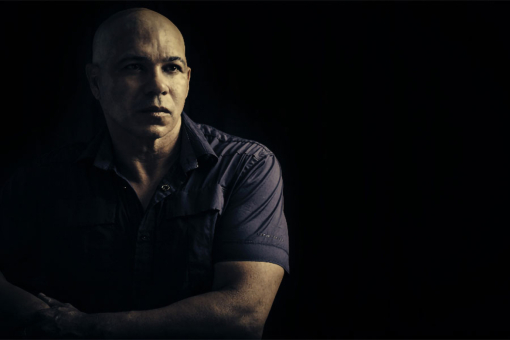The first frames of the opening credits of television’s legendary That Girl placed viewers in the front car of a train as it barreled into New York City.
That locomotive not only carried a young woman who was filled with dreams of independence, but it also brought television into a new era of enlightenment. A groundbreaking program teeming with wit, style and social consciousness, That Girl didn’t set out to change the world. But over the course of its celebrated five-year run, it did exactly that.
Airing on ABC from 1966 to 1971, That Girl starred the effervescent Marlo Thomas as aspiring actress Ann Marie from Brewster, New York, who sets her sights on the bright lights of the Big Apple (as perfectly punctuated by the pulsating theme music that opened each episode).
She meets and falls in love with Newsview magazine writer Donald Hollinger, played with chivalrous charm by Ted Bessell, while her sternly loving father Lew Marie, portrayed by the ever dependable Lew Parker, watches from afar - yet is somehow always near.
The show’s ace acting, writing and directing melded seamlessly, combining its colorful sets and fabulous wardrobe to create a cheerful, intelligent and always funny half-hour, one that dependably delivered logical stories with lively dialogue with a decidedly feminist undertone.
Each of the show’s characters had a unique voice (not one line spoken could be interchanged among Ann, Donald and Lew).
The series also featured a rotating A-list of semi-regular and guest players, including: Rosemary DeCamp as Helen Marie (Ann’s mother); Bernie Kopell as Jerry Bauman (Donald’s associate at Newsview, and later Ann’s next door neighbor); Broadway legend Ethel Merman (who made two special-guest appearances); All in the Family’s Carroll O’Connor (as a pre-Archie Bunker opera singer); Laugh-In regular Ruth Buzzi, as Ann’s tom-boyish best friend; stalwart Jesse White (TV’s iconic Maytag commercial repairman) as one of Ann’s many talent agents (which also included comedian George Carlin for one season); and veteran thespian Mabel Alberston, as Donald’s over-bearing mother - a role she played equally well on sister ‘60s sitcom Bewitched (ABC, 1964-1972).
Thomas’ performance as Ann was fresh and unique, earning her a Golden Globe as Best Female TV Star in the show’s debut season, and four Emmy nominations as television’s Best Leading Actress.
Off-screen, her role influenced millions of women to take charge of their own lives, this at a time when the country was feeling the first jolts of the new feminist movement. Indeed, Ann Marie became one of the medium’s first “emotionally intelligent” characters, female or otherwise, bursting with a unique blend of vivaciousness, innocence and smarts, and seizing control whenever she faced adversity.
Meanwhile, of course, millions of men across the nation fell in love with the grace, beauty and emotional agility that Thomas brought to the part.
As both the star and producer of That Girl, Thomas was equally in charge. Alongside Lucille Ball, she was one of the first women in Hollywood to engage in the delicate dance of headlining a weekly series on-camera while also producing the series off-camera.
It was a perilous era for any comedy show, as the 1960s were dominated by chaos - political assassinations, race riots, recreational drug use and the sexual revolution. Through it all, however, Thomas and company successfully delivered an uplifting half-hour of escapism that rode to the top of the ratings in each year of its five-year run.
Viewers quickly embraced the independent and lively character of Ann Marie, particularly her relationship with Bessell’s Donald Hollinger, which was portrayed as innocent and serious; pure, kind, loyal and loving. Fans of the series grew to appreciate their respect for one another. They adored how supportive Donald was of Ann’s dreams, and they loved their electrifying on-screen chemistry.
They also enjoyed her on-screen banter with Lew Parker. Both actors, Thomas recalls, were “masters of the double-take,” and their comic timing, professionalism and sense of fun were just a few of the many reasons she maintained an affection for each off the set.
“They were divine,” Thomas says, “but without Teddy, Ann wouldn’t have been the same character. In fact, because of Teddy the show could have been called ‘That Couple.’ He was simply brilliant from the first moment we saw him. We auditioned practically every young actor in town for the part…like Charles Grodin and Bill Bixby…but when Teddy and I read a few scenes together, that was it. No contest.
He had humor and a quirky kind of sexy charm that we saw immediately - and the girls in our audience just loved.”
According to the industry’s TV-Q public popularity polling, Bessell was one of television’s highest-rated male counterparts to a female lead. “He just had it,” Thomas says of Bessell’s charisma and talent.
“We’d both studied acting with Sandy Meisner, so we had the same sort of center [acting technique]. We had a wonderful time working together and remained friends until the day he died.”
Bessell succumbed to an aortic aneurism on October 6, 1996, just as he and Thomas were developing a TV-movie sequel to That Girl. According to Thomas, that film would have picked up the story of Ann and Donald who, having never married on the show, meet again years after he was divorced and she was a widow, running her own small theatre.
Both Thomas and Bessell were very excited about the prospect. “I would have loved the chance to work with him again,” Thomas says.
Naturally, after Bessell’s death the That Girl sequel was cancelled, but a planned 30th Anniversary celebration of the original series in New York went on as scheduled. Thomas decided to turn the event into a tribute to her beloved former co-star.
“He was amazing,” she says today, “and I’ll miss him forever.”
Thomas feels the same way about Parker, whom she frequently refers to as “adorable.”
“Lew had been married a couple of times,” Thomas says. “He didn’t have any children, but he loved me like a daughter.”
Thomas recalls an episode of That Girl, “Paper Hats and Everything,” that triggers a particularly poignant memory of Parker. The segment, which originally aired on February 9, 1967, centered on a surprise birthday party being held for Ann at her apartment. Parker’s Lew was to detain Ann in order for Donald and others to properly plan the festivities, so he took her out to dinner.
During that scene, Ann asks her dad if he was disappointed that she wasn’t born a boy. In a very touching moment, Lew Marie tells Ann: “Well, let me think back. First I asked how your mother was. Then I asked if you had ten toes, ten fingers, two eyes and a nose. She said yes and I thanked God. Then they let me look at you…and I knew that you were what I had been praying for.”
As Thomas recalls, “Lew couldn’t get through the scene because he kept tearing up. And, by the way, so did I.”
More tears followed on October 27, 1972 when, only two years after That Girl completed its five-season run, Parker collapsed on stage during a performance of A Funny Thing Happened on the Way to the Forum in New York. A lifelong heavy smoker, he was rushed to the hospital and diagnosed with terminal lung cancer.
“I went to see him at the hospital every day, and I always brought him the ice cream he loved from 31 Flavors,” Thomas remembers. “We laughed, and talked about that episode, and cried together.”
Shortly after that hospital stay, Thomas received a phone call from Parker’s wife, actress Betty Kean, informing her that Parker had died. Kean informed Thomas that Parker had requested she deliver his eulogy.
“I was deeply touched,” Thomas recalls, “but I was also terrified. I’d never given a eulogy before and couldn’t imagine getting through one about Lew without collapsing in tears. I also had no idea how to write a eulogy. Lew’s family and friends would be there. How could I summarize all their feelings of loss as well as my own? I didn’t know what to do.”
So Thomas sought advice from her real-life father, entertainer Danny Thomas, who suggested that she simply speak from her heart, recalling the Lew she remembered best.
“Most important,” Thomas counseled his daughter, “…tell stories. That’s what people want to hear. And don’t be afraid to make them laugh. They need that, too.”
While her TV dad played an influential role in her life on That Girl, Thomas's real-life father was, and remains, the overwhelming inspiration in both her life and career.
A multi-talented performer - beloved nightclub headliner, movie actor, TV producer and star - Danny Thomas would also become world-renowned for founding St. Jude’s Children’s Research Hospital in Memphis, Tennessee, a leading research and treatment center for children with cancer and other life-threatening diseases.
Along with her brother Tony and sister Terre, Thomas has tirelessly continued that work since her father’s passing in 1991. But it is her earliest memories of her dad that are most indelible.
“Even as a small child,” Thomas says, “I deeply admired his work ethic and his love of that work. Those two aspects, together, are so important for any young person to observe.”
Thomas vividly recalls her dad hunched over his desk, listening to tape recordings of his live nightclub act, which he frequently performed to sold-out crowds at heralded venues like the Sands Hotel in Las Vegas and the Palladium in London. Studying those tapes, he would carefully hone his comedic timing, musical selections and audience interaction in order to insure the perfection of subsequent performances.
This attention to detail, to “the true craft of being a performer,” as his daughter calls it, was largely the reason for the success of Danny Thomas’ legendary television series Make Room for Daddy (later titled The Danny Thomas Show, when it switched networks from NBC to CBS during its lengthy run from 1953 to 1965).
“As a young kid, I sat in on so many of his writers’ meetings at home,” Thomas recalls, “and saw firsthand how they looked for the truth in every story. I learned so much from that.”
When working within the framework of a TV situation comedy, her father had told her, “Every story has to have a beginning, middle and end. You need to tell a logical, credible story - and you need to do it in 22 minutes.”
It was all about maintaining “respect for the audience,” the elder Thomas would tell his daughter. “Remember, the audience will follow you down any yellow brick road as long as you never lie to them. Once you go off that road, you’ve lost them. Always be honest, and never go for a joke or an easy laugh if it takes you off the road of your story.”
To this day, Thomas still treasures the memories of her father’s nightclub performances. “He was so genuinely happy when he was on stage,” Thomas remembers. “His eyes would be on fire, light up, even dance. It was a tremendous thing to witness, and it impacted my work as an actor and producer.
"It taught me that if you do something organically - straight from what you believe in - it will succeed, because it’s not coming from an external place, but rather an internal choice. Everything that I do stems from that same organic place.”
Danny Thomas would ultimately appear as a guest-star in two episodes of That Girl: “My Sister’s Keeper” (2-6-69), in which he made a short cameo as a priest; and which also featured Marlo’s real-life sister Terre (playing a nun) and brother Tony (who would go on to become a producer of TV’s The Golden Girls); and “Those Friars” (1-8-71), in which Marlo and Danny sang and performed together, and which also featured Milton Berle.
While That Girl possessed all the typical trappings of a hit series - solid storytelling, pristine cast - the show’s social underpinnings are what made it historic.
“Much of the series sprang from my consciousness of women’s rights, and what I was going through and thinking about at the time,” Thomas says. This level of awareness, was heightened after she’d read Betty Friedan’s landmark nonfiction work, The Feminine Mystique, which was first published in 1963 and ultimately helped ignite the women’s liberation movement in the 1960’s.
Thomas had sold the concept of That Girl to ABC after completing a different pilot for the network, titled Two’s Company, which had not sold as series.
As Edgar Scherick, the head of programming for ABC, had explained to Thomas, Clairol, one of the network’s main sponsors, had almost granted Company the green-light because, as Thomas says today, “They were looking for a girl to sell shampoo. They needed a young female star, and they thought I was it.”
ABC ultimately opted not to purchase Two’s Company, but Scherick and Clairol were determined to find a show for Thomas and began sending her scripts for consideration. But none of what they suggested appealed to her.
“I don’t really like any of them,” she told Scherick. “The female lead is either the wife of somebody, or the daughter of somebody, or the secretary of somebody. Have you ever thought about doing a show where the girl is the somebody - somebody with a dream?”
“Why not do a show about a girl like me,” Thomas continued. “Someone who has graduated from college and wants to be an actress. Someone whose father wants her to get married, but who moves away from home, even though that causes anxiety in both of her parents.”
Scherick answered, “Would anyone watch a show like that?”
That’s when Thomas handed a copy of The Feminine Mystique to Scherick, encouraging him to read it.
“This is what’s happening in the country,” she told him. “This is where we’re going. This is the moving target.”
Once Scherick finished reading the book, he was sold - and he and Thomas became good friends. Together they developed what became the pilot for That Girl, which was written by Bill Persky and Sam Denoff (veterans of The Dick Van Dyke Show, CBS; 1961-1966).
“Billy was very much a feminist,” Thomas says. “He had a sister, wife and daughters, all of whom influenced his life in many ways. Sam not so much. But he was very funny and came along with us. They were good counterparts for each other.”
Despite Scherick’s support of the series, the network was cautious. According to its research, there wasn’t a great deal of enthusiasm for a television series about an independent woman; viewing audiences weren’t fond of show business stories, and they didn’t like female characters without families.
“They certainly weren’t drawn to shows starring actors no one had ever heard of - like me,” Thomas says.
The worry, it turns out, was for naught: That Girl debuted on September 8, 1966, and was an instant hit.
“The night we premiered,” Thomas wrote in her memoir, Growing Up Laughing, “we won our time slot. What happened? What happened was that this girl, who seemed like a revolutionary figure to the men in suits who did the research, was not a revolutionary figure at all. She was a fait accompli. There were millions of ‘That Girls’ in homes across America. We were not our mother’s daughters. We were a whole different breed.”
As Bill Persky would later proudly note, “We threw a grenade into the bunker and cleared the way for Mary Richards [on The Mary Tyler Moore Show, CBS, 1970-1977], and Kate and Allie [a show with the same title that he later directed for CBS, 1984-1989) and everyone else to walk right through it.”
As That Girl’s star and executive producer, Thomas embodied the very strength and independence being espoused by the women’s movement, overseeing every aspect of the series, including the initial table-readings of the scripts.
“I would actually read the scripts before they even got to the table,” Thomas recalls. “We talked a lot about what a girl would actually say to her father or her boyfriend. We knew we couldn’t just go for a laugh - we had to be real and still be funny.
"In the first season, we didn’t have any women on the writing staff, so there was always lots of discussion - with me, as the only woman, leading it - about the female perspective, clarifying Ann’s various views on dating, auditions, work, and life. ”
That Girl’s first season was executive produced by Persky and Denoff, and produced by Jerry Davis, who had worked on the first two years of Bewitched (from 1965-1966) alongside Danny Arnold. Eventually, Arnold (who would go on to produce The Odd Couple and create Barney Miller, both also for ABC) took over as producer for That Girl’s second and third seasons.
“Danny was a great producer and I loved him,” Thomas says. “He saw right away that I needed - and the show needed - a female story editor.”
So he brought in writer Ruth Brooks Flippen, another Bewitched veteran. Thomas was ecstatic.
“Until Ruth joined our all-male staff,” Thomas wrote in Growing Up Laughing,” I had felt like a lonely voice in the wilderness. I had learned that, for a woman, there was safety in numbers. It’s never wise to be the only female at the table. Experience had taught me: One is a pest, two is a team, three is a coalition. Now I had Ruth. We were only two but, together, we were like the Red Army.”
Thomas refuses to point fingers about the earlier lack of women on staff. “It wasn’t anyone’s fault,” she says. “That’s simply where society was at the time. That Girl was so cutting edge for television - there had never been a show about a young, single, working girl who moved away from home, and tried to make it on her own. We were learning what we needed as we went along.”
Indeed, The Mary Tyler Moore Show, with a similar theme, debuted during That Girl’s fifth and final season; and, as Moore herself has stated in several interviews over the decades, “That Girl paved the way for my show.”
Thomas decided to end the series in its fifth year, during which Ann and Donald became engaged. Both the network and Clairol pleaded with Thomas to have the couple marry in the last segment, but she flatly rejected the idea.
“I understood why they wanted a wedding…weddings get high ratings. But we’d just spent five years telling women all over the country that, although marriage can be great, it wasn’t Ann’s priority now. She didn’t need it to feel complete.
“I never wanted the show to become That Married Woman,” Thomas continues. “Television had loads of married women. I just couldn’t cop out on the girls and women who had followed Ann Marie’s independent, single life and had found in her a model for themselves.
"So for the very last scene in the final show, Donald and I get stuck in an elevator, on our way to a women’s lib meeting. That seemed the perfect way to close things out. And once we had made that creative decision, ABC and Clairol were very supportive of it.”
In addition to That Girl, Thomas’ historic television work includes: It Happened One Christmas, a 1977 holiday remake of Frank Capra’s 1946 big-screen Christmas classic, It’s Wonderful Life (with Thomas portraying a female version of the lead role originated by Jimmy Stewart; and which ABC aired for four years); the ground-breaking, Emmy-winning specials Free to Be...You and Me (based on her best-selling children’s book and Grammy-winning LP of the same name) and Free to Be...A Family; and more than a dozen renowned TV-movies, including Nobody’s Child, which aired in 1986 and earned Thomas the Emmy for Lead Actress in a TV-Movie or Mini-Series.
Over the years, Thomas has made several guest appearances on shows such as Friends (playing Jennifer Aniston’s mom), Law & Order, and The New Normal, while her feature films include: L.O.L. (2012), Playing Mona Lisa (2000), In the Spirit (1990), Thieves (1977) and Jenny (1970).
She also continues to win critical acclaim on stage, most recently in Elaine May’s 2012 Broadway comedy-drama, Relatively Speaking, and in Tony Award-winning playwright Joe DiPietro's 2015 dark comedy, Clever Little Lies.
As with That Girl, all of Thomas’ subsequent projects have been rooted in her personal convictions. Indeed, Free To Be...You and Me began as quest to find a suitable storybook for her niece, Dionne, the first grandchild in the Thomas family.
“I was having a hard time finding something for Dionne to read that didn’t promise a world that didn’t exist,” Thomas explains.
“As hard as I looked, I couldn’t find any books for a little girl that didn’t say, ‘The prince will come along and make it all okay.’ So I created something for her with a wonderful group of my friends, and we dedicated it to Dionne and all the girls and boys in our lives. It really was my gift to my adored niece.”
The public reception of the Free to Be LP was overwhelmingly positive, earning it a gold record. It also became a number-one bestselling book; an Emmy Award-winning TV special and a stage play, and was embraced by teachers and librarians nationwide, becoming a part of school curriculum in 35 states. Its impact continues to be felt today, as parents hand it down to a new generation of children.
Including the Free To Be series, Thomas has produced five other bestselling books, including It Ain't Over...’Till It's Over, The Right Words at the Right Time (Volumes 1 and 2), Thanks and Giving All Year Long, and her memoir, Growing Up Laughing: My Story and the Story of Funny.
In all, Thomas has won four Emmys (with a total of 9 nominations); was the recipient of The Peabody, a Golden Globe and a Grammy; has been inducted into the Broadcasting Hall of Fame; was awarded the 2014 Presidential Medal of Freedom (in recognition of her artistic and philanthropic efforts) by President Barack Obama at a White House ceremony; and was honored with a building in her name as part of St. Jude Children's Research Hospital (with Hillary Clinton presiding at the building’s ribbon-cutting).
Other honors include: the Helen Caldicott Award for Nuclear Disarmament, the ACLU's Thomas Paine Award, the American Women in Radio and Television Satellite Award, the William Kunstler Racial Justice Award, The National Civil Rights Museum Freedom Award, and The Jefferson Award for Public Service, which she received along with Supreme Court Justice Ruth Bader Ginsburg.
Today, Thomas’ gifts and talents are continually on display in a torrent of ever-invigorating projects.
In 2010, she launched an innovative website in partnership with AOL and The Huffington Post. Through informative articles, expert forums, video segments, and her hit weekly web interview series, "Mondays With Marlo," she’s earned hundreds of millions of clicks annually.
She also launched a bullying prevention campaign on the site, spearheading a nationwide anti-bullying initiative in partnership with, among others, the Ad Council, AOL, Facebook, and the U.S. Departments of Education and Health and Human Services.
Thomas infuses each project with the same boundless energy she brought to That Girl’s Ann Marie.
“It’s just my metabolism,” she muses. “People call me the Energizer Bunny. I suppose that’s just my own joy of the work showing through.”
But whether she’s appearing on screens large and small, or raising money for St. Jude, or logging in eight performances a week on the Broadway stage, her greatest joy is relatively simple: “Coming home at night to be with my husband.”
That would be TV talk show pioneer Phil Donahue, who Thomas met during her now-famous appearance on his show in 1977, when both were immediately taken with one another - on camera.
The clip from that memorable meeting now lives online, and all these years later, it still sparkles with a unique blend of passion, laughter and love. Just like an episode of That Girl.
For more 50th Anniversary stories, click here.

